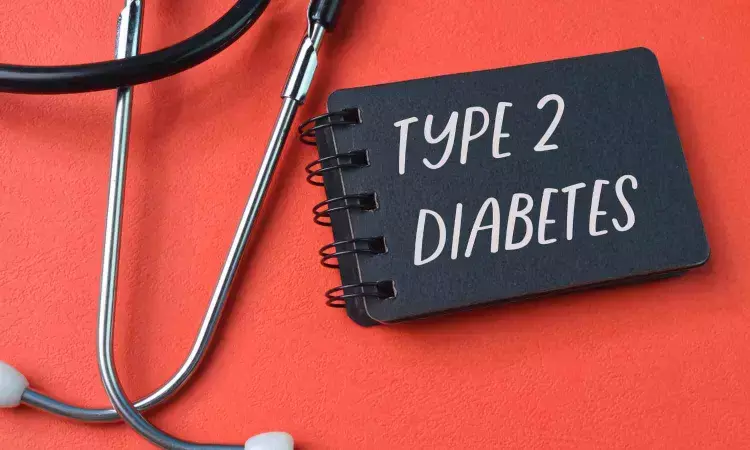- Home
- Medical news & Guidelines
- Anesthesiology
- Cardiology and CTVS
- Critical Care
- Dentistry
- Dermatology
- Diabetes and Endocrinology
- ENT
- Gastroenterology
- Medicine
- Nephrology
- Neurology
- Obstretics-Gynaecology
- Oncology
- Ophthalmology
- Orthopaedics
- Pediatrics-Neonatology
- Psychiatry
- Pulmonology
- Radiology
- Surgery
- Urology
- Laboratory Medicine
- Diet
- Nursing
- Paramedical
- Physiotherapy
- Health news
- Fact Check
- Bone Health Fact Check
- Brain Health Fact Check
- Cancer Related Fact Check
- Child Care Fact Check
- Dental and oral health fact check
- Diabetes and metabolic health fact check
- Diet and Nutrition Fact Check
- Eye and ENT Care Fact Check
- Fitness fact check
- Gut health fact check
- Heart health fact check
- Kidney health fact check
- Medical education fact check
- Men's health fact check
- Respiratory fact check
- Skin and hair care fact check
- Vaccine and Immunization fact check
- Women's health fact check
- AYUSH
- State News
- Andaman and Nicobar Islands
- Andhra Pradesh
- Arunachal Pradesh
- Assam
- Bihar
- Chandigarh
- Chattisgarh
- Dadra and Nagar Haveli
- Daman and Diu
- Delhi
- Goa
- Gujarat
- Haryana
- Himachal Pradesh
- Jammu & Kashmir
- Jharkhand
- Karnataka
- Kerala
- Ladakh
- Lakshadweep
- Madhya Pradesh
- Maharashtra
- Manipur
- Meghalaya
- Mizoram
- Nagaland
- Odisha
- Puducherry
- Punjab
- Rajasthan
- Sikkim
- Tamil Nadu
- Telangana
- Tripura
- Uttar Pradesh
- Uttrakhand
- West Bengal
- Medical Education
- Industry
People with type 2 diabetes who eat low-carb may be able to discontinue medication, finds research

Adults with type 2 diabetes on a low-carbohydrate diet may see benefits to their beta-cell function allowing them to better manage their disease and possibly discontinue medication, according to new research published in the Endocrine Society’s Journal of Clinical Endocrinology & Metabolism.
Beta-cells are endocrine cells in the pancreas that produce and release insulin, the hormone that controls blood sugar levels.
More than 38 million Americans have diabetes, and over 90% of them have type 2 diabetes. Type 2 diabetes most often develops in people 45 or older, but more and more children, teens and young adults are also developing the disease.
People with type 2 diabetes have a compromised beta-cell response to blood sugar, possibly due in part to eating too many carbohydrates. Beta-cell failure or insufficiency on top of insulin resistance is responsible for the development and progression of type 2 diabetes.
“This study shows people with type 2 diabetes on a low-carbohydrate diet can recover their beta-cells, an outcome that cannot be achieved with medication,” said lead study author Barbara Gower, Ph.D., of the University of Alabama at Birmingham in Birmingham, Ala. “People with mild type 2 diabetes who reduce their carbohydrate intake may be able to discontinue medication and enjoy eating meals and snacks that are higher in protein and meet their energy needs.”
The researchers gathered data from 57 white and Black adults with type 2 diabetes, half on a low-carbohydrate diet and the other half on a high-carbohydrate diet and examined their beta-cell function and insulin secretion at baseline and after 12 weeks.
All of the participants’ meals were provided. People on the carbohydrate-restricted diet ate 9% carbohydrates and 65% fat, and participants on the high-carbohydrate diet ate 55% carbohydrates and 20% fat.
The researchers found those on a low-carbohydrate versus a high-carbohydrate diet saw improvements in the acute and maximal beta-cell responses that were 2-fold and 22% greater, respectively. Within each race group, Black adults on a low-carbohydrate diet saw 110% greater improvements in the acute beta-cell response and White adults had improvements in the maximal beta-cell response that were 48% greater than their respective counterparts on the high-carbohydrate diet.
“Further research is needed to determine if a low-carbohydrate diet can restore beta-cell function and lead to remission in people with type 2 diabetes,” Gower said.
Reference:
Barbara A Gower, Amy M Goss, Marian L Yurchishin, Sarah E Deemer, Bhuvana Sunil, William T Garvey. Effects of a Carbohydrate-Restricted Diet on β-Cell Response in Adults With Type 2 Diabetes. The Journal of Clinical Endocrinology & Metabolism, 2024; DOI: 10.1210/clinem/dgae670.
Dr Kamal Kant Kohli-MBBS, DTCD- a chest specialist with more than 30 years of practice and a flair for writing clinical articles, Dr Kamal Kant Kohli joined Medical Dialogues as a Chief Editor of Medical News. Besides writing articles, as an editor, he proofreads and verifies all the medical content published on Medical Dialogues including those coming from journals, studies,medical conferences,guidelines etc. Email: drkohli@medicaldialogues.in. Contact no. 011-43720751


